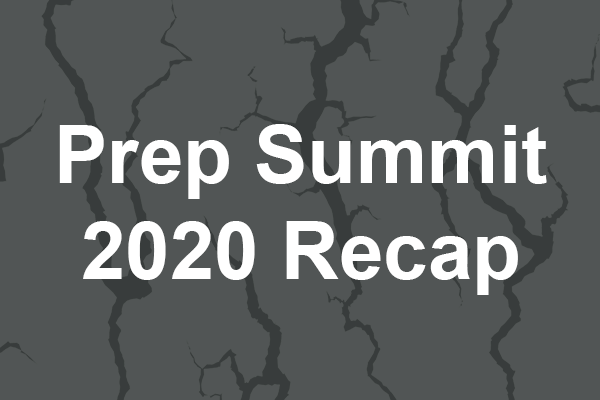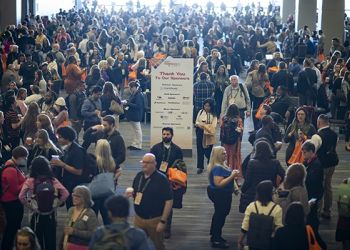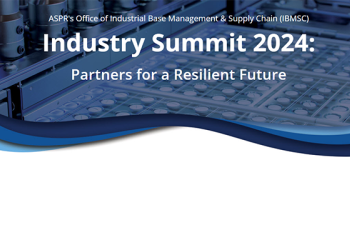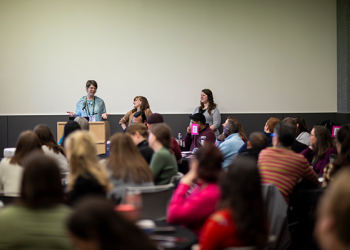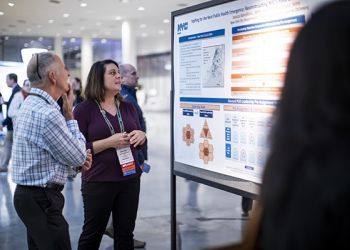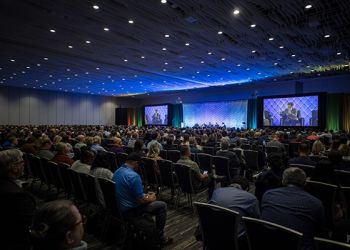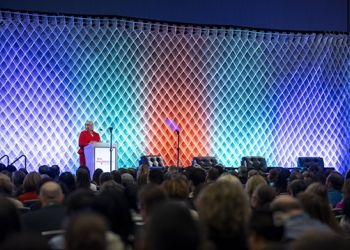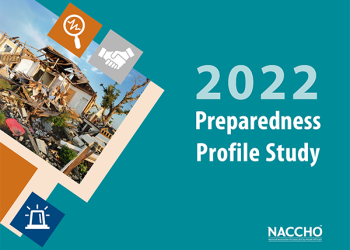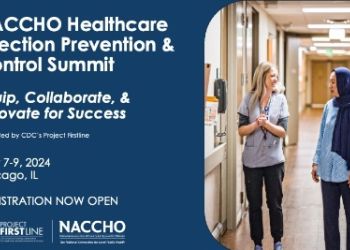On August 25-27, 2020, more than 1,300 attendees—who work in all levels of government (local, state, and federal), emergency management, volunteer organizations, healthcare coalitions, and academia—participated in the first ever virtual Preparedness Summit. Attendees participated in more than 115 demos, workshops, and learning sessions, and heard from expert-led panels, providing them an opportunity to prepare for, respond to, and recover from the waves of the COVID-19 pandemic and the many other threats to public health and health security.
The Summit’s theme, “Fixing Our Fault Lines: Addressing Systemic Vulnerabilities,” echoed throughout the sessions as attendees and speakers explored the many ways the pandemic is exposing and exacerbating the pre-existing cracks in our nation’s health and emergency preparedness infrastructures.
Attendees participated in a Meet & Greet, the Project Public Health Ready Awards Ceremony and Networking Reception, and the Heroes Happy Hour. They also took part in more than a dozen live demos and workshops focused on a range of preparedness topics. The Summit offered eight partner and policy town halls on topics ranging from wildfire preparedness to COVID-19 vaccine planning and implementation to crisis standards of care, and more.
Tuesday: COVID-19 Response Briefing: Perspectives from the Field – Where Do We Go From Here?
NACCHO Chief Executive Officer Lori Tremmel Freeman, MBA, kicked off the opening plenary sponsored by Ring Central by welcoming attendees and observing a moment of silence for those lost to the pandemic. She emphasized the need for those from national, state, and local public health to work together to support each other and the science of public health.
NACCHO Senior Director of Preparedness Laura Biesiadecki, MSPH, welcomed attendees and shared a video featuring members of the U.S. Senate and House of Representatives thanking attendees for their hard work and dedication throughout the pandemic.

Dr. John Dreyzehner, MD, MPH, FACOEM, Director of the Centers for Preparedness & Response at the Centers for Disease Control and Prevention, moderated the day’s plenary. He spoke to the need for public health emergency preparedness and response to evolve to address new threats and new threat landscapes. He shared that the next generation of preparedness and response should include a national scientific framework, research support, a response culture committed to stronger relationships rooted in networks of trust across government and responder disciplines, and technical and leadership training.
Bill Whitmar, MS, Laboratory Director of the Missouri State Public Health Laboratory, shared the laboratory-related successes and challenges experienced in Missouri during the COVID-19 pandemic. He noted communications with partners as a success and shortages of key testing components as a challenge.
Dr. Cathy Slemp, MD, MPH, Former Health Officer & Commissioner of the West Virginia Bureau for Public Health, noted that COVID-19 response is a marathon not a sprint, and that one of our biggest challenges is balancing the need to be strategic with the reality that this novel virus has forced us to be reactive. She shared that COVID-19 falls at the intersection of healthcare, individual and collective behavior, and environmental and socioeconomic factors, noting that addressing such issues can only successfully be done through partnership, planning, community engagement, and relationships.
Dr. Sherri L. Davidson, PhD, MPH, Interim State Epidemiologist of the Alabama Department of Public Health, compared the COVID-19 challenge to an expedition race—one that we have trained for. She said that COVID-19 highlights and amplifies the need to have immediate and complete data coming directly from providers to state, local, territorial, and tribal public health partners and the CDC. She cited a need for more robust discussion across the public health enterprise to determine which surveillance strategies support useful decision making.
Jennifer Kertanis, Health Director of Farmington Valley Health Department (CT), stressed the importance of local efforts in emergency response, sharing that the COVID-19 response has been different than one typically led locally, managed by the state, and coordinated and funded federally. She noted the length of the response and its politicization as ongoing challenges. She also sees this response as an opportunity for local health departments to tell their story, reframe public health values, and advocate for what is in the best interests of our communities and country.
Wednesday: Finding HOPE through Crisis: Managing Stress and Supporting Optimism
Dr. Oscar Alleyne, DrPH, MPH, Chief of Programs and Services at NACCHO, opened the session by talking about the dual impact disasters and emergencies have on public health and preparedness professionals and the need to take care of yourself, particularly your mental health.
Professional musician Chad Jeffers helped to open the session with a video thanking front line public health professionals on behalf of the music and entertainment industry.

Dr. Robert Kadlec, MD, MTM&H, MS, Assistant Secretary for Preparedness and Response, U.S. Department of Health & Human Services, gave Wednesday’s keynote. He shared how the Office of the Assistant Secretary for Preparedness and Response (ASPR) has and will continue to address this historic and unprecedented pandemic, including a Whole-of-America response to help communities meet the surge of virus cases. He also shared ASPR’s commitment to achieving health equity and addressing the inequitable outcomes of COVID-19.
Wednesday’s plenary session was led by Dr. Gloria Park, PhD, MAPP, Director of Performance Psychology, Consortium for Health and Military Performance, and Dr. Gabe Paoletti, EdD, MAPP, Mental Fitness Scientist, Consortium for Health and Military Performance. Drs. Park and Paoletti shared a variety of strategies to help participants better manage stress, sustain and maintain performance, and keep resilient in the face of challenges that lie ahead. Some specific strategies shared included practicing gratitude, cultivating an optimistic mindset, and using coaching questions to become self-aware of where you are struggling. They also shared the concept of “Active Constructive Responding,” a practice to help engage with empathy and hold space for shared positive experiences. Resources shared during the session included a gratitude calendar and five ways to power your performance with optimism.
Thursday: Addressing Structural Racism in the Era of COVID-19: Past, Present, and Future
Dr. Oscar Alleyne, DrPH, MPH, Chief of Programs and Services at NACCHO, opened Thursday’s session sponsored by Esri sharing that the pandemic response has shined a bright light on the cracks in our system and exposed many critical issues, especially the topic of structural racism. He encouraged everyone to look in the mirror and examine ways that structural racism has impacted our field, organization, approaches, and practices.
Pete Buttigieg and David Holt, the respective mayors of South Bend, Ind., and Oklahoma City, Okla., helped to open the session with a thank you message to all the public health officials in attendance.

Dr. Este Geraghty, MD, MS, MPH, CPH, FACP, GISP, Chief Medical Officer and Director of Health Solutions at Esri, provided Thursday’s keynote, sharing the significance of geography on structural racism. She discussed the detrimental impact of the practice of redlining and offered four strategies where geography can help to combat inequities: community engagement, mapping and analyzing inequities, operationalizing best practices, and managing performance.
Dr. Alonzo Plough, PhD, MPH, Vice President, Research-Evaluation-Learning and Chief Science Officer at the Robert Wood Johnson Foundation, served as moderator for the panel discussion. He shared that through the lens of COVID-19, what’s become apparent is that a vision of a culture of health and health equity must provide equal chances at health for all people. He noted that it is going to take a lot from all of us, as a nation, to create that equitable future.
Mariel Torres Mehdipour, MPH, Emergency Response Equity Officer, Public Health for Seattle & King County, and John Yates, MBA, Director of Racial Equity & Social Justice at the New York City Department of Health and Mental Hygiene, shared strategies that each of their departments have undertaken to embed equity into their work. They discussed the equity gaps within current ICS structures and stressed the need for the community to be centered within preparedness and response efforts, not on the periphery. They also spoke to the importance of hiring staff that represent the communities served.
Conference Content Available On-Demand
Conference attendees have full access to plenary and town hall recordings, demos, workshops, the exhibit hall, and other conference offerings. If you did not register for the conference but would like on-demand access to the sessions, you can still register.
Save the date for the 2021 Preparedness Conference April 12-15 in Atlanta. For more about the conference, visit www.preparednesssummit.org.
